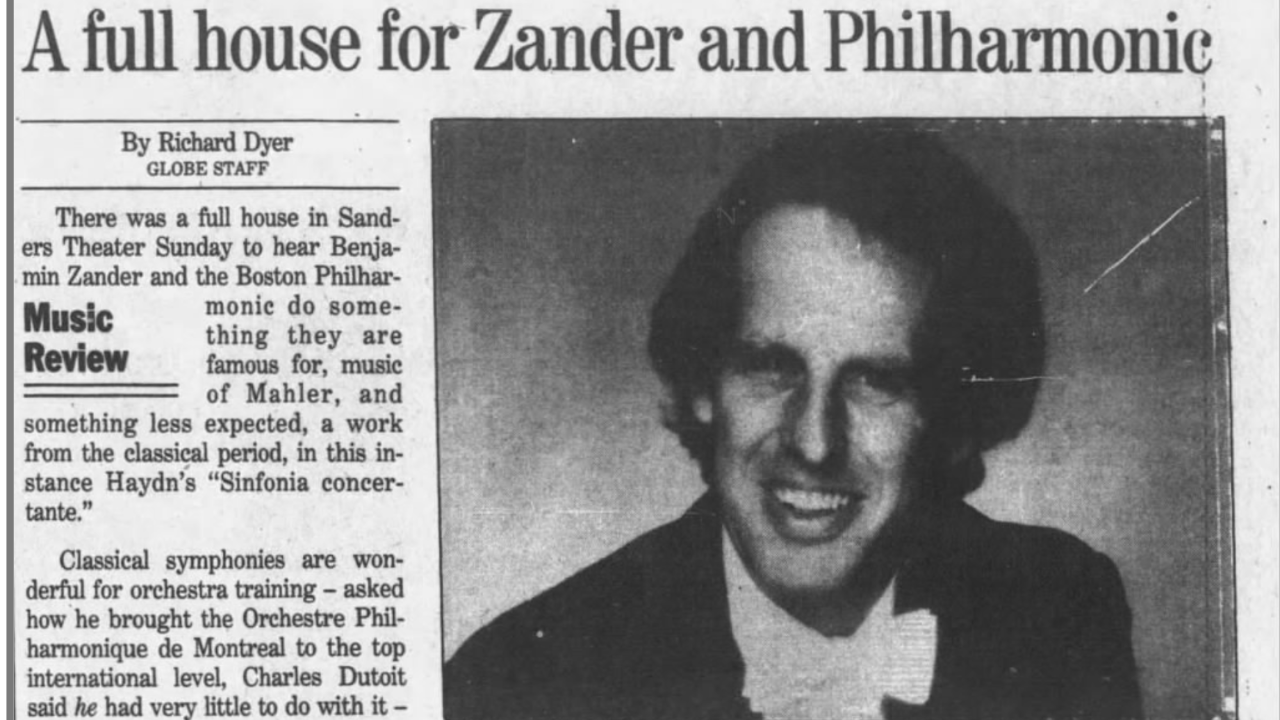A full house for Zander and Philharmonic

There was a full house in Sanders Theater Sunday to hear Benjamin Zander and the Boston Philharmonic do something they are famous for, music of Mahler, and something less expected, a work from the classical period, in this instance Haydn’s “Sinfonia concertante.”
Classical symphonies are wonderful for orchestra training – asked how he brought the Orchestre Philharmonique de Montreal to the top international level, Charles Dutoit said he had very little to do with it putting a symphony of Haydn or Mozart on every feasible program did the job. The Philharmonic has gone about the task in other ways, which may account for what has always been a bit lopsided in its playing. As it happens, the present body of Philharmonic strings is closer to being up to Haydn than many of its predecessors, but the performance turned out to be little more than a makeweight because of the odd mix-‘n’-match character of the four soloists who carry this work. Haydn can accommodate very diverse stylistic approaches, but there ought not to be four of them in simultaneous operation, ranging from the polished salon style of the violin to the full-blown romantic operation of the cello to the plain-jane efforts of the oboe to the elegantly obstreperous bassoon of Jonathan Macgowan, which alone sounded really persuasive.
But what the audience came to experience was the Mahler Fourth and what it heard was a performance of rare loveliness. Yes, the usual Philharmonic problems were in evidence – wonderful solo playing alternates with some of less character, class and competence; among the heroes and heroines were concertmaster Arturo Delmoni, dead-on in his mistuned solo, the liquid clarinet of John C. Fullam, the supple trumpet of Andrew Balio when he wasn’t blasting, the dashingly characterful horn of Neil Deland, the harp: of Martha Moor, so apt in color and rhythmic placement. The orchestra as a whole was wonderfully responsive to Zander’s profound understanding of this music and its rhythmic life, playing throughout with a transparent quality of sound. Soprano Jayne West appeared at the end, singing the child’s vision of heaven with a joy, simplicity and radiance that convinced us that this must be true.
To read the original article, click here.
 Richard Dyer - The Boston Globe
Richard Dyer - The Boston Globe